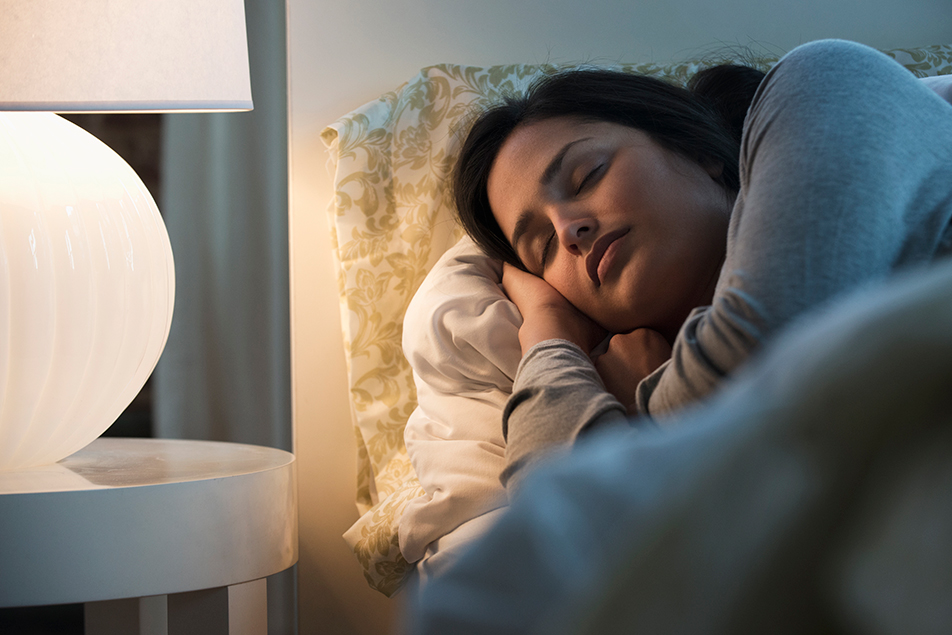
This post features content from Srinivasan Devanathan, MD, PPG – Sleep Medicine.
Drawing the connection between sleep and common illnesses, such as colds or other infections, is a complex topic, but certainly one worth discussing. For years, people have believed that if they didn’t get enough rest they would get sick. There is some truth to this concept, but to understand it, we have to first explore the mechanisms our bodies use to fight against infections and inflammation.
The research
There have been a number of studies demonstrating that challenges like the common cold, parasitic infections, other viral illnesses and conditions as severe as HIV, certainly alter sleep in both animals and humans. Chemicals in the brain and those that help in the natural immune response (cytokines) are impacted by illness.
Without sufficient sleep, the body makes less cytokines, a protein that will target infection and inflammation to create an immune response. These chemicals are both produced and released during sleep, so if you skimp on shut-eye, your immunity can suffer.
In addition, research has demonstrated that a lack of sleep could impact the efficacy of certain immunizations. The National Sleep Foundation confirmed that chronic sleep deprivation makes the flu vaccine less effective.
T cells and sleep
To understand how sleep and immunity are linked, we have to have a general understanding of the immune response. In short, it all starts with the T cells. T cells have a memory system in them, so they can recognize infection, recall it and then trigger the appropriate response to target that infection. These cells are the main part of the immune response that targets harmful foreign bodies.
T cells activate another group of chemicals, called integrins. T cells hold on to integrins, which attach to the T cell so they can go attack their target, the infection. Certain hormones in the body will try to prevent T cells from latching on to integrin molecules, and if they can’t latch on they can’t have a strong response.
So, how does all of this come back to sleep? Research shows that T cells are higher in people who slept an appropriate amount and there is a higher level of integrin activation. In addition to supporting correct T cell function, sleep helps make the activity of harmful hormone chemicals less effective.
Stages of sleep and immune response
Often, we have variations in sleep, which we refer to as non-REM (NREM) and REM sleep. When your body gets an infection, it generates a response. In the acute phase of this response, people might notice things like swelling or redness. There are a lot of inflammatory agents at work trying to limit the infection.
Fever is a very key part of this reponse – one which often makes people a little nervous. Our body temperature is linked to sleep, specifically, our circadian rhythm and arousal state. Researchers have found that our brain temperature increases rapidly during REM sleep and our brain and body temperature decrease during NREM sleep.
If you think about fever as a survival phenomenon, clinicians are always more concerned with a lower body temperature than a high one, when infection is present. Fever actually creates two responses. First, it creates the immune response by rising, which helps our body fight infection. It’s actually a good thing. Second, the body’s natural environment changes when it’s attacked by an organism. The fever changes the host environment as part of a defense mechanism to prevent the multiplication of unwanted organisms. Not all organisms can thrive in the rising body temperature.
When you have a fever, your metabolism increases 10-15%, which raises your body temperature. The same can be said for the act of shivering. Shivering is the body’s way of generating heat. The act of shivering is much more common in NREM sleep. While we tend to get more NREM sleep when we’re sick, which is a more fragmented form of sleep, we get the benefits of our body working to generate a higher temperature to fight the infection while in this stage.
The bottom line is that fever is a good thing! The body is generating an inhospitable environment by raising its temperature through a higher metabolism, shivering and sweating.
Prevention is key
It’s always a good idea to get plenty of sleep in an effort to prevent illness. This helps the body generate an adequate amount of T cells so it can be prepared to fight off any unwanted organism that comes along.
But sleep alone won’t protect you from the sources of infection and inflammation lurking all around us. Employ healthy strategies such as proper hand washing, coughing into your arm rather than hand or air, and get your vaccinations, including the flu shot, on time. Chronic sleep loss certainly increases your risk of infection, and there are other factors that can greatly impact immunity, but practicing these healthy habits can help.
If you do happen to get sick, let yourself sleep. If you feel tired, that is your body signaling that it is trying to use sleep as a mechanism to help you recover. Slow down and get plenty of rest so you can get back to your regular routine.



